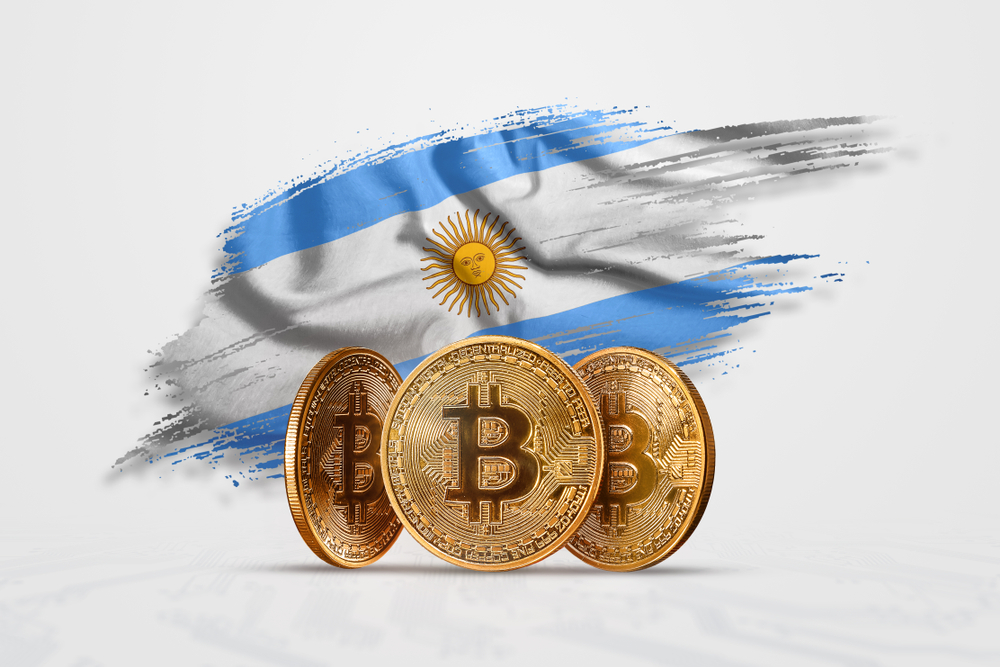A recent statement by Argentina’s central bank banned payment platforms from crypto-related trading services. The update issued on Thursday, May 4, directs the payment applications from Bitcoin to exclude crypto trading services from their portfolio.
Argentina Bans Payment Protocols From Crypto Trading Services
The ban echoes previous attempts by Argentina’s regulators to have tight rein on the crypto industry. The bank’s statement affirms the South American country to clamp down on digital assets. The bank’s update seeks to eliminate the risks inherent in digital assets by invalidating the provision of cryptos such as bitcoins.
The Central Bank of the Argentine Republic (BCRA) cites the continued presence of risks that, when left unresolved, would become contagious to other sectors.
The stance portrayed by the BCRA terminates the crypto trading business for several firms. The parties hit most by the ban are the fintech Ualá and online-based marketplace MercadoLibre, which recently emerged popular in crypto trading.
The Central Bank would hours later tweet that providers of payment services that offer accounts to Argentines should desist from executing or facilitating digital assets-based transactions.
BCRA Imposes Ban to Safeguard Customers from Risky Cryptos
The ban is set to illegalize digital assets yet to secure regulatory approval from BRCA and others alongside other competent authorities.
The stance adopted by Argentina contradicts the approach adopted by the next-door government in Brazil legalizing bitcoin use as payment menthod. The statement remains noncommittal based on imposing the ban. Nonetheless, BCRA cited the necessity to safeguard the customers from losing their wealth if converted into unrecoverable digital assets.
The ban locks out major payment platforms, including Ualá and Mercado Libre. The latter would bear the huge consequences given its scale as the modern-day response to Amazon in Latin America.
Crypto Popular in Argentina as it Battles High Inflation
The decision by BCRA is surprising given that Argentina is among the economies battling rapid Inflation rates globally. Despite ranking third largest in the Latin region, the national inflation rates rose above 100% in April. The huge increment in the Argentinian inflation rate broke a three-decade record.
The move contradicts the approach adopted by economies battling skyrocketing inflation rates, such as El Salvador where bitcoin is a legal tender.
The move is set to attract criticism, considering several crypto startups have recently supported Bitcoin as the savior to counter inflation.
A leading presidential candidate recently emerged as a proponent of Bitcoin utilization, particularly to the hard-hit Argentinians who were also confronting poverty following the peso collapse.
Argentina Emerging Centre for Cryptos
While cryptos remain nonregulated in the country, their popularity is magnificent. The assessment by blockchain-based data analytic Chainalysis positions Argentina as among the crypto markets registering the fastest growth.
Chainalysis assessment in 2022 ranks Argentina as 13th in the Global Crypto Adoption Index.
The ban imposed by BCRA is worth watching, particularly with Argentina emerging as a critical player in the global crypto landscape.
Recently, Buenos Aires was host to the 2022 LaBitConf event. The continental event saw leading bigwigs in digital assets led by Micha Saylor of MicroStrategy and Ethereum’s Vitalik Buterin as the key speakers. Their presence affirms the growing input of Argentina within the global ecosystem.
Meanwhile, BCRA indicates that the restrictive measures aim to minimize the exposure of Argentina’s payment systems to volatile digital assets. BCRA justify the prohibitive order to the payment platforms by considering that the majority of cryptos offered remain unregulated by the national authorities.
The move aligns with the previous pronouncement by the central bank that warned against crypto risk. Such may change as the markets regulator CNV supports the bill to create a registry of firms that will offer virtual assets.
Halting the provision of cryptos in the South American country echoes the strict capital controls the government deploys to limit the activities in foreign currency exchange. Given that the 2022 Chainalysis Index places Argentina among the leading countries in crypto adoption globally, it is critical to watch the development.
